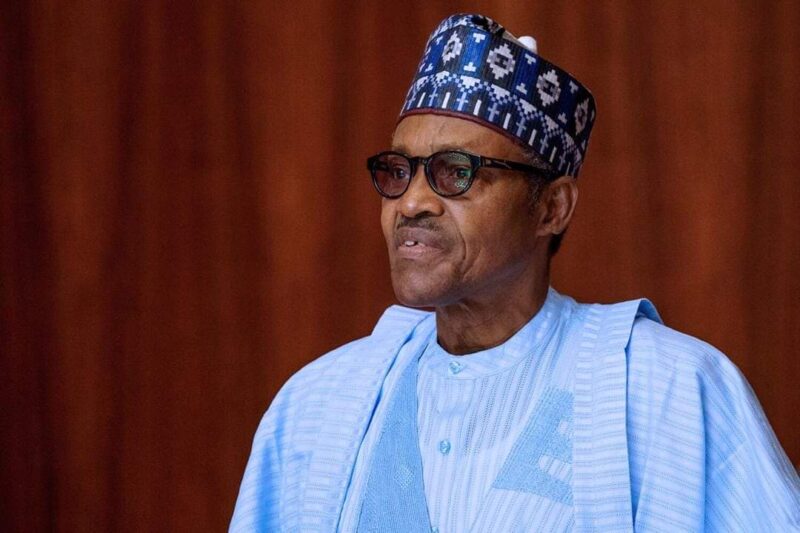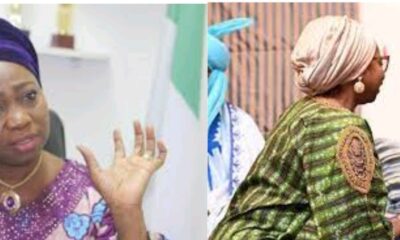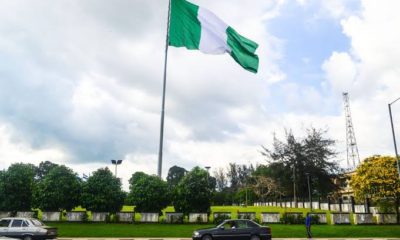National Issues
Looting Of Public Funds As Wickedness Of The Highest Order -By Isaac Asabor
The spate of corruption over the years has been on a steady rise so much so that Nigeria was in 2012 estimated to have lost over $400 billion to corruption since independence, and was in 2018 ranked 144th in the 180 countries listed in Transparency International’s Corruption Index.

If there is any disorder that some Nigerian leaders are suffering from, and which is flippantly considered to be ordinary among them, it is Kleptomania. Defined from a psychiatric perspective, it is a “strong impulse to steal, especially when there is no obvious motivation.” Regrettably, given the mind-boggling revelations of frauds allegedly being perpetrated across various ministries, departments and agencies across the country in the recent time, one cannot be considered to be a mischievous person or a comedian when caught weeping in the market place.
The reason one would not be called a mischievous person or a comedian for weeping in the market place over the unprecedented looting of public funds is that the monies that have so far being plundered by kleptomaniacs who deceptively parade themselves as civil or public servants and political appointees were meant to ensure that the economy is developed and peoples’ wellbeing adequately taken care of. But alas! The predilection of this few number of kleptomaniacs who, from my estimation, may not be up to 2 per cent of the entire population Nigerians, to steal from public treasuries is by each passing day becoming mind-boggling.

In fact, the spate of corruption over the years has been on a steady rise so much so that Nigeria was in 2012 estimated to have lost over $400 billion to corruption since independence, and was in 2018 ranked 144th in the 180 countries listed in Transparency International’s Corruption Index.
Exactly a year today, a former aide to President Muhammadu Buhari on Financial Crimes in the Federal Ministry of Justice, Mr. Biodun Aikomo revealed that “The biggest problem Nigeria faces is corruption, as resources meant for everybody are in the pockets of individuals.

Mr. Aikomo, who was Senior Assistant to President Buhari, said: “We must go beyond mere rhetoric and really join hands as citizens to fight corruption. If we wait for the anti-corruption and law enforcement agencies to fight corruption, we may not achieve much progress. As citizens, it is important to show courage to demand accountability from public officials.”
Aikomo who spoke at a town hall meeting organized by the Socio-Economic Rights and Accountability Project (SERAP) in collaboration with UKaid may not be wrong in his assertion that “If we wait for the anti-corruption and law enforcement agencies to fight corruption, we may not achieve much progress”, may have been vindicated when seen from the unprecedented cases of corruption that are being witnessed in the recent time.

The town hall meeting titled: ‘Citizens’ participation in the fight against corruption in the police, health, education, judiciary and electricity sectors in Nigeria’, and held at the Ikeja Airport Hotel, Ikeja was attended by representatives of Nigerian Labour Congress (NLC), National Orientation Agency (NOA), the Revenue Mobilization Allocation and Fiscal Commission (RMAFC), Nigerian Bar Association (NBA) Ikeja branch, human rights activists, civil society leaders, the media, and other stakeholders, such as market women association, taxi drivers’ association, and student associations.
Paradoxically, despite the corruption war embarked upon by Buhari, prevailing public opinion has it that the war has failed in curbing money laundering and terror financing risks even as European Commission (EU) last year blacklisted Nigeria as one of the countries posing threat to EU banks.
As if the foregoing were not enough, Ibrahim Magu, the head of the Economic and Financial Crimes (EFCC) was recently quizzed and suspended from office over allegations of fraud including the diversion of recovered funds and seized assets. Trailing the allegations were various shades of wonderment expressed by Nigerians as they asked, “What happens when the proverbial hunter becomes the hunted?” The question cannot in any sense be said to be misplaced as Magu’s fate as the country’s chief anti-corruption czar, from whichever perspective it would analyzed from is quizzical.

As if that was not enough, alleged issue of corruption that runs into billions of naira and sexual scandal between Senator Godwill Akpabio, the minister of Niger Delta and Joy Nunieh, the former Acting Managing Director of the Niger Delta Development Commission (NDDC) have become talk of the town. In quick succession, the ill-fated grilling of the incumbent Acting Managing Director of the NDDC Prof. Kemebradikumo Pondei has become worrisome and entertaining as he slumped right in the floor of the house and was rushed to the hospital.
At this juncture, it is expedient to urge the federal government to expedite action in ridding the agency of unscrupulous and compromising officials for it to effectively function in accordance with the Act that established it to play the role of combating financial and economic crimes, and preventing, investigating, prosecuting and penalizing economic and financial crimes. The EFCC should be cleaned up to be carrying its responsibility of enforcing the provisions of other laws and regulations relating to economic and financial crimes. The reason for the foregoing view cannot be farfetched as the Bible in the book of Ecclesiastes Chapter 8 verse 11 says that “Because the sentence against an evil deed is not executed quickly, therefore the hearts of the sons of men among them are given fully to do evil”.










